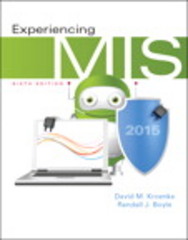Question
I need suggestions for improving the Data Collection Plan chart on indicators development and analysis. Part 4: Data Collection Plan Indicators Development Template Focus Area
I need suggestions for improving the Data Collection Plan chart on indicators development and analysis.
Part 4: Data Collection Plan
Indicators Development Template
| Focus Area | Question | Indicators (Types of Data) | Technical Assistance Needed (Sources of Data) |
| Student Retention | Student satisfaction surveys | Institutional data records | |
| How effective are the current retention strategies in retaining first-year students? | Retention rates | Student surveys | |
| Academic progress reports | Academic records | ||
| Academic Success | GPA improvement | Academic records | |
| What impact does participation in FYSRP have on academic performance? | Course completion rates | Student surveys | |
| Utilization of academic support services | Usage logs of support services |
Source: W. K. Kellogg Foundation. (2004). Logic model development guide.https://bttop.org/sites/default/files/public/W.K.%20Kellogg%20LogicModel.pdf
Analysis
This Indicators Development Template will help assess FYSRP's efficacy, and substantial redundancy in student retention and academic performance is particularly important. Such a template is achieved by generating questions for evaluations and indicators by which data necessary to evaluate the program's effect thoroughly is obtained.
In reviewing the retention problem, these questions aim to determine the success of the current retention resources. Such indicators are used to assess the effectiveness of the provided service and identify factors concerning student retention rates, student satisfaction surveys, and academic progress reports (Addison & Williams, 2023). The retention rates (measures the program's success in terms of the first-year students enrolled) add an extra quantitative aspect to the program by giving it an overarching view of its effectiveness. Besides that, qualitative student satisfaction surveys help to expand the quantitative data, allowing students to hear feedback and view the programs. The survey helps the program to see its strengths and deficiencies through people who will benefit the most from the program. Furthermore, academic progress reports contribute a great deal of information concerning the student's performance and involvement, which, in this case, provides alternative but more objective evidence of how the program changes the students' future academic level (Norvilitis et al., 2022). This information, which will be forged by technical help to institutional records, surveys, and academic papers, shall also be used.
At the same rate, those evaluation questions about academic success are devoted to discovering the effects of taking classes at FYSRP on the students (Caballero, 2020). To tackle these issues, indicators such as the rise of existing GPA, total course completion rates, and the use of academic support services go in related directions. For its part, GPA improvement is one of the possible quantitative indicators of academic progress: They directly show that students make significant academic progress due to program participation. Apart from being a factor to themselves, grade completions inform better the extent to which students are engaged in the academic process and, therefore, will yield some insight regarding their persistence in the given program ("National Park College,"2021). Further, we also need to look at the use of academic support services, i.e., tutoring and mentoring, to get an idea of how well the students benefit from the FYSRP resources that aim to improve academic performance. The same resource must be allocated for the same metrics: student retention, academic records, opinion forms, and monitoring service usage logs in technical assistance needs for indicators.
Step by Step Solution
There are 3 Steps involved in it
Step: 1

Get Instant Access to Expert-Tailored Solutions
See step-by-step solutions with expert insights and AI powered tools for academic success
Step: 2

Step: 3

Ace Your Homework with AI
Get the answers you need in no time with our AI-driven, step-by-step assistance
Get Started


